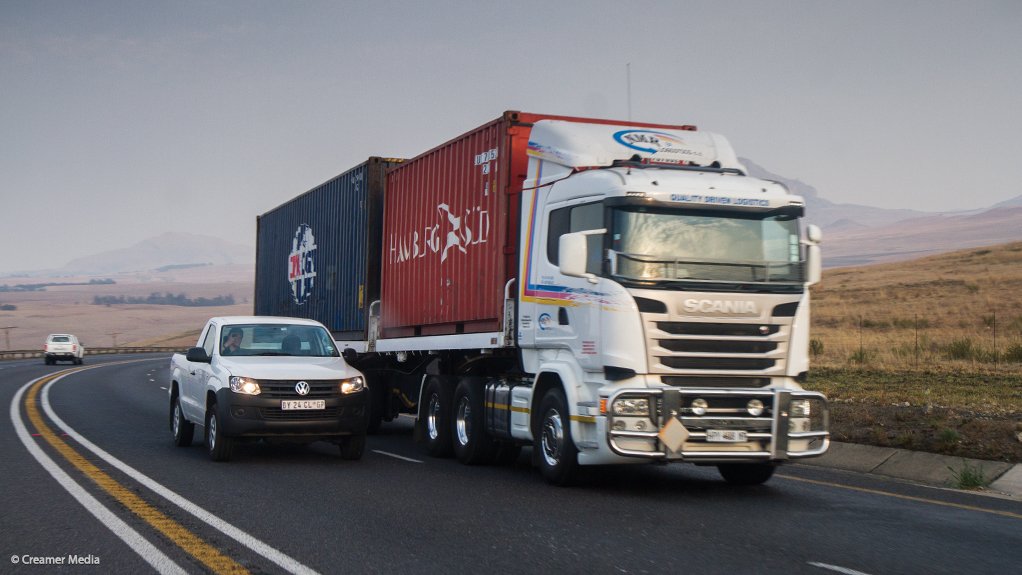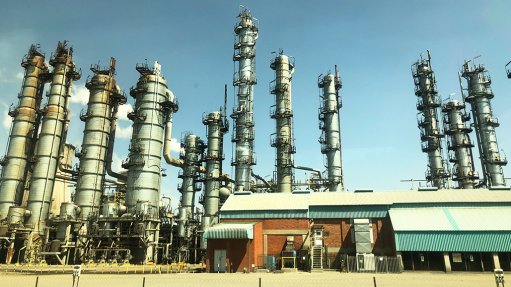South Africa must focus on export competitiveness – Mavuso
South Africa must develop industrial policies that build the international competitiveness of its export industries, including by enabling small businesses that could be exporting much more, particularly to neighbouring countries and particularly in services exports, says business organisation Business Leadership South Africa (BLSA) CEO Busi Mavuso.
A study of South Africa’s international trade performance, by development finance institution the World Bank, found that this has been lagging the growth of the wider economy.
Since 2010, South Africa's share of global exports has been on a steady decline. Trade is dominated by large firms with minerals and agricultural products, while manufactured goods have disappointed, particularly outside of the automotive sector.
"Our services exports have also been relatively weak, with growth lagging far behind other middle-income countries," Mavuso points out.
Domestic trade policy should focus on export competitiveness, not trying to protect local producers from foreign competition. The whole of government needs to be focused on enabling South African companies to send goods and services to the rest of the world. A strong partnership with business will be important as the country builds that competitiveness, she says.
The country's poor export performance is at least partly owing to the collapse of the logistics system. The weak performance of ports and rail compounds the problem of being far away from main markets in both the East and West by making logistics very expensive.
However, the World Bank also highlights that industrial policy focused on localisation has damaged South Africa's export performance and increased costs to consumers. The use of forced local content requirements, tax incentives and tariffs, import licences and local ownership procurement rules can contribute to making industries less innovative and competitive over time.
"Tariffs, for example, increase the cost to domestic consumers of important components in supply chains that ultimately render the finished goods less competitive in international markets.
"By forcing localisation into supply chains, we are actively damaging our ability to compete in international markets, and therefore constraining the growth of industries that are competitive to protect industries that are not. The net result might well be that we damage local economic activity," Mavuso highlights.
The World Bank report calls for a full review of South Africa's localisation strategy, she points out.
The Government of National Unity (GNU) has the opportunity to turn this legacy around and refocus on enabling South African business to sell into international markets.
Trade, Industry and Competition Minister Parks Tau engaged with stakeholders across business and also impressed many by embarking on a trip to the US, which is one of the country's key markets, particularly for manufactured goods, to help restore South Africa’s relationship and support the country's continued beneficiary status under the African Growth and Opportunity Act.
"This was a good signal that the Minister is keen to protect and promote our trade relations with the rest of the world. This start needs to now build into a coherent industrialisation and trade policy," says Mavuso.
Such a policy should coordinate the actions of government, such as by ensuring South Africa's border posts, ports and railways have the capacity to efficiently facilitate improved trade flows.
"This policy needs to align with our global diplomatic efforts to gain beneficial trading relationships with other countries, and then facilitate South African companies to access those markets," she adds.
"BLSA has already tabled several ideas to the Minister at his request on how we could improve competitiveness. We are similarly willing to engage with other Cabinet Ministers. There needs to be a whole-of-government approach, forged through a coherent policy platform shared by the GNU," Mavuso says.
Article Enquiry
Email Article
Save Article
Feedback
To advertise email advertising@creamermedia.co.za or click here
Comments
Press Office
Announcements
What's On
Subscribe to improve your user experience...
Option 1 (equivalent of R125 a month):
Receive a weekly copy of Creamer Media's Engineering News & Mining Weekly magazine
(print copy for those in South Africa and e-magazine for those outside of South Africa)
Receive daily email newsletters
Access to full search results
Access archive of magazine back copies
Access to Projects in Progress
Access to ONE Research Report of your choice in PDF format
Option 2 (equivalent of R375 a month):
All benefits from Option 1
PLUS
Access to Creamer Media's Research Channel Africa for ALL Research Reports, in PDF format, on various industrial and mining sectors
including Electricity; Water; Energy Transition; Hydrogen; Roads, Rail and Ports; Coal; Gold; Platinum; Battery Metals; etc.
Already a subscriber?
Forgotten your password?
Receive weekly copy of Creamer Media's Engineering News & Mining Weekly magazine (print copy for those in South Africa and e-magazine for those outside of South Africa)
➕
Recieve daily email newsletters
➕
Access to full search results
➕
Access archive of magazine back copies
➕
Access to Projects in Progress
➕
Access to ONE Research Report of your choice in PDF format
RESEARCH CHANNEL AFRICA
R4500 (equivalent of R375 a month)
SUBSCRIBEAll benefits from Option 1
➕
Access to Creamer Media's Research Channel Africa for ALL Research Reports on various industrial and mining sectors, in PDF format, including on:
Electricity
➕
Water
➕
Energy Transition
➕
Hydrogen
➕
Roads, Rail and Ports
➕
Coal
➕
Gold
➕
Platinum
➕
Battery Metals
➕
etc.
Receive all benefits from Option 1 or Option 2 delivered to numerous people at your company
➕
Multiple User names and Passwords for simultaneous log-ins
➕
Intranet integration access to all in your organisation





















